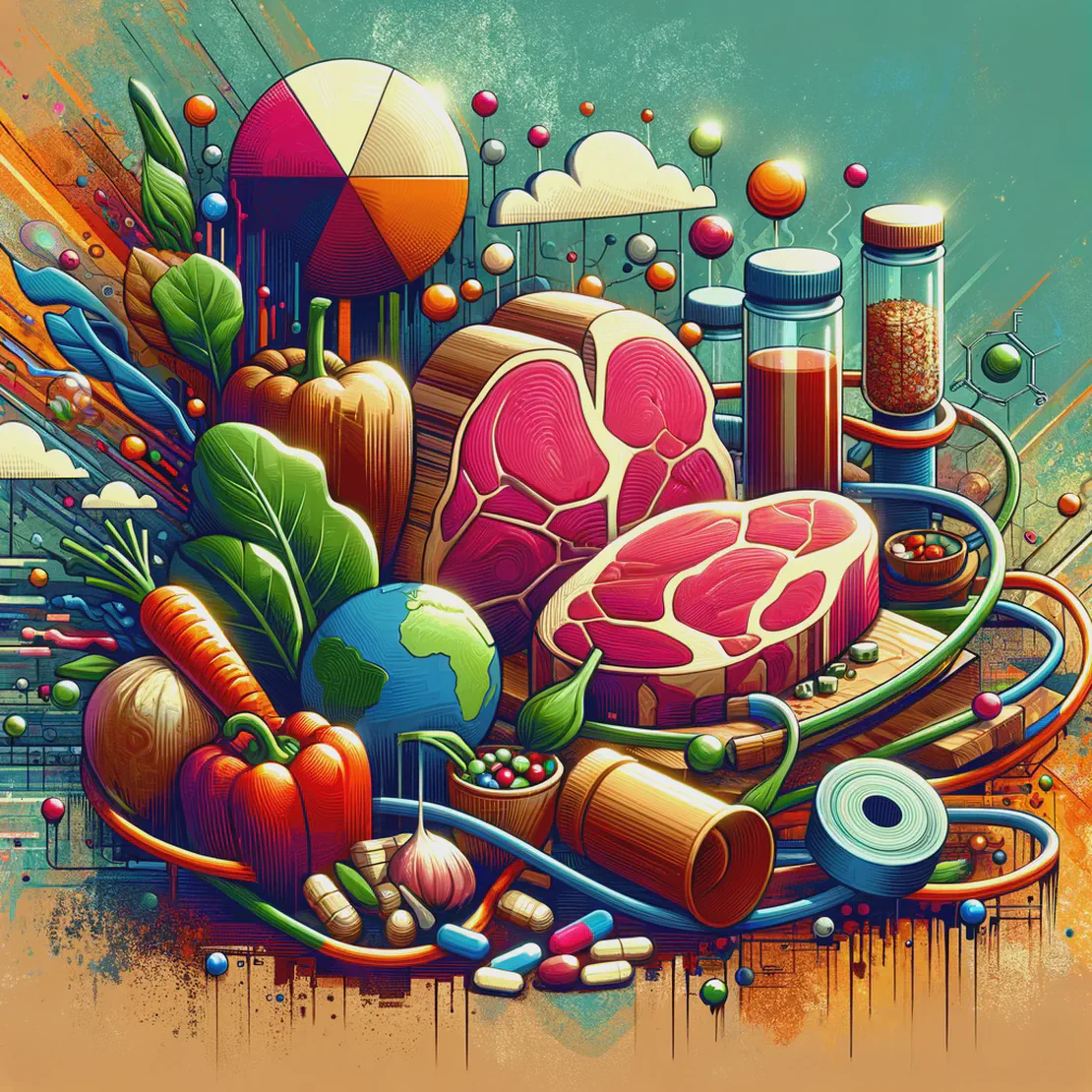
#804 - Sam Harris
- The Joe Rogan Experience
- Health
- June 1, 2016
Table of Contents
At a Glance
- Sam Harris on Veganism and Health Concerns - “I stopped eating meat since I last saw you… I get hate mail from vegans and vegetarians… They say, stop. Stop putting your bullshit on us”. Harris discusses his transition to a vegetarian diet and the backlash he receives from the vegan community, highlighting the tribalism and cult-like behavior within dietary movements.
- Harris discusses Ethical and Environmental Concerns with Meat Consumption - “I don’t have an argument against hunting the way I do against factory farming… The environmental implications of it”. Harris emphasizes the ethical and environmental issues associated with factory farming, contrasting it with more sustainable practices like hunting.
- Harris talks Challenges of Maintaining a Vegetarian Diet - “I feel like my health is somewhat withering under this… I’m not totally sure it’s the healthiest thing for me”. Harris expresses concerns about the health impacts of his vegetarian diet, discussing the need for careful supplementation and balanced nutrition.
- Understanding the Psychological and Social Dynamics of Veganism - “It’s a wonderful cult of people that want to take care of animals and be nice to animals. But they’re very tribal… They organize little troll attacks and make YouTube videos”. Harris delves into the social dynamics and aggressive behavior within the vegan community, illustrating the intensity of their advocacy.
- Speculation on the Future of Cultured Meat - “We’re on the cusp of being able to produce actual, biologically identical meat that is totally cruelty-free… People have this creepy feeling around it”. Harris discusses the potential of cultured meat to address ethical concerns of traditional meat production, while also noting the psychological barriers people face in accepting lab-grown meat.
What to Do
- Monitoring Health - The guest suggests monitoring intake of essential nutrients and being proactive about health checks: “Are you getting your blood checked?“and “Are you monitoring your intake of fatty acids?”.
- Dietary Choices - Sam Harris discusses his dietary changes and the rationale behind them, implying a suggestion about considering ethical eating “I felt like a hypocrite as a meat eater”.
- Approach to New Technologies - Sam Harris expresses a positive outlook on the potential of cultured meat technologies, suggesting an openness to innovative solutions to ethical and environmental problems “It’s fascinating that we’re on the cusp of being able to produce actual, biologically identical meat that is totally cruelty-free”.
- Handling Criticism and Social Feedback - They discuss how to deal with negative feedback and the social implications of changing one’s diet, particularly from vegetarianism to eating meat “Did you see that family, a couple that runs a bunch of vegan restaurants, and they decide to start eating meat again…They get mad”.
What to Get
“Making Sense: Conversations on Consciousness, Morality, and the Future of Humanity” -Sam Harris https://amzn.to/45Fnn8J
- B12 Supplementation - Sam Harris mentions using B12supplementation as essential for his vegetarian diet. https://amzn.to/3RphEh2
- D3 Supplementation - Similarly, D3 is noted as essential, presumably used by SamHarris in his diet. https://amzn.to/3xhY93i
- Coconut Oil - Mentioned as critical for vegetarians to maintain adequate fat intake. https://amzn.to/3RtyMlT
- Avocados and Avocado Oil - Harris’s guest speaks positively about using these for their essential fats. https://amzn.to/4cfcKew
- Almond Butter - Listed among the sources for essential fats, indicating usage. https://amzn.to/4ckVZyU
- Eggs and Dairy - Harris mentions that he still consumes eggs and dairy, despite his vegetarian diet. https://amzn.to/3KKkppM
- Memphis Meats - Discussed in the context of being a cultured meat startup; however, SamHarris has not tried their products yet but finds the concept fascinating.
Summary
In this thought-provoking podcast episode, Joe Rogan and Sam Harris dive into a wide range of topics surrounding dietary choices, focusing on vegetarianism and the ethical, health, and environmental impacts of eating meat. Get ready for a deep and engaging conversation that will make you think twice about what’s on your plate! The episode kicks off with Sam Harris discussing his recent switch to a vegetarian diet, motivated by health concerns and ethical discomfort with eating meat. Joe Rogan expands on the challenges of vegetarianism, emphasizing the need for dietary supplements like B12 and D3 and discussing the critical role of dietary fats in hormone production. They debunk common myths about fats and cholesterol, clarifying their importance for overall health. As the dialogue progresses, they delve into the ethical issues surrounding meat consumption, especially the inhumane conditions in factory farming. Sam Harris talks about the moral dilemma of eating meat due to the cruelty involved in raising animals, while Joe points out the significant environmental impacts of meat production, like resource use and emissions contributing to climate change. They also highlight the paradox of vegetarianism, noting that even plant-based diets can cause environmental harm and animal deaths due to agricultural practices. The conversation then shifts toward potential solutions like cultured meat. Inspired by Sam’s interaction with Uma Valetti from Memphis Meats, they explore the feasibility of lab-grown meat as a way to resolve the ethical and environmental issues associated with traditional meat production. Despite its benefits, they discuss the psychological barriers people face with the concept of lab-grown meat, noting public skepticism and mixed reactions. This part of the conversation is particularly rich, exploring the potential market and consumer attitudes toward cruelty-free, lab-grown meat alternatives. Throughout the episode, there are moments of both agreement and disagreement, especially concerning the feasibility and current costs of cultured meat technologies. Lighter moments, including jokes about dietary habits and interactions with vegans online, add a human touch to the discussion. The dialogue is packed with detailed discussions on health, ethical debates on animal rights, and futuristic perspectives on food technology, providing a comprehensive look at the complexities of dietary choices in today’s world. This conversation offers an in-depth understanding of the nuanced perspectives on vegetarianism, veganism, and the future of food, making it perfect for anyone interested in these critical topics.


